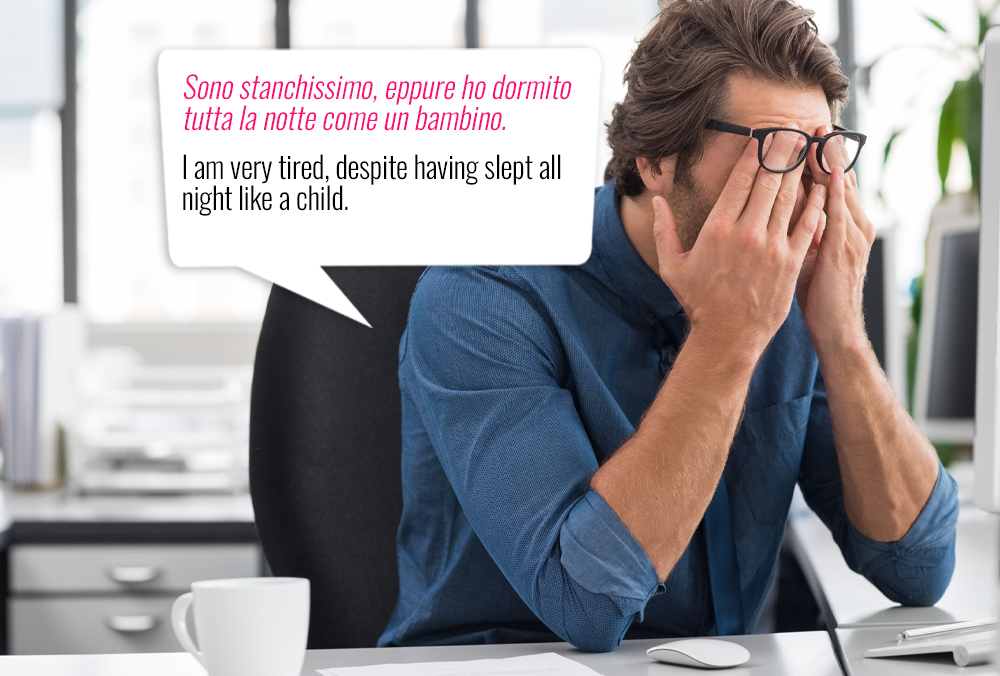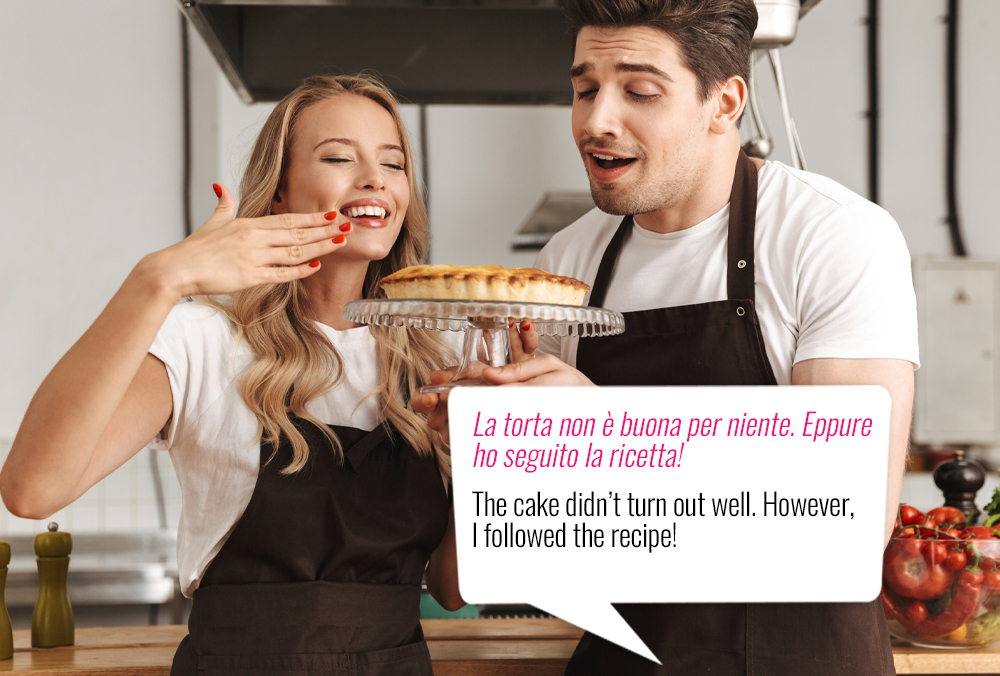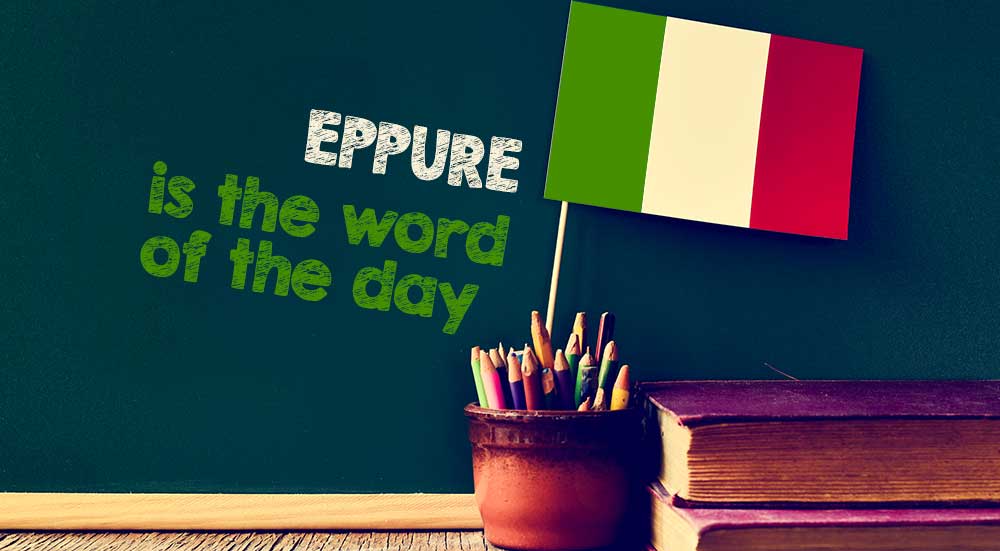Today’s word is eppure(ai-puh-rai). Eppure comes from the Latin phrase et pūre, which means “and even so.” This phrase was composed of the conjunction et, meaning “and,” and the adverb pūre, meaning “purely” or “truly.” Over time, it evolved into the word eppure in Italian and gained the meaning of “however,” “nevertheless,” or “despite” (“despite all”) in English.
Eppure is frequently used to convey a contradiction or a difference between two statements as in, for example, non mi piace la pizza, ma ne mangio una fetta ogni tanto (“I don’t like pizza, but I have a slice every now and then”), or ho studiato moltissimo per l’esame ma ho solo ottenuto un voto sufficiente (“I studied hard for the exam, but I only earned a passing grade”).
In addition, eppure can be used to introduce a conclusion or concluding remark, as in sono andato alla festa senza grandi aspettative, ma alla fine mi sono divertito molto (”I went to the party with low expectations, but in the end I had a lot of fun”).
Eppure is frequently used in colloquial language, although it can also be employed in official circumstances. To prevent making the text or conversation heavy, it’s important to use the word wisely and not overdo it. Eppure is very useful and adaptable and it allows for the clear and concise articulation of contrasts, contradictions, and conclusions.

Famous in Italian is the sentence attributed to science icon Galileo Galilei who, according to tradition, would have uttered it when forced to abjure heliocentrism in front of the Inquisition: Eppur si muove, “But it moves!” Galileo apparently said. Of course, he referred to Earth and how it moves around the Sun.
- Hai dimenticato di comprare le uova. Eppure te lo avevo scritto!
- You forgot to buy eggs, even though I wrote it for you!
- La torta non è buona per niente. Eppure ho seguito la ricetta!
- The cake didn’t turn out well. However, I followed the recipe!
- Sono stanchissimo, eppure ho dormito tutta la notte come un bambino.
- I am very tired, despite having slept all night like a child.




























